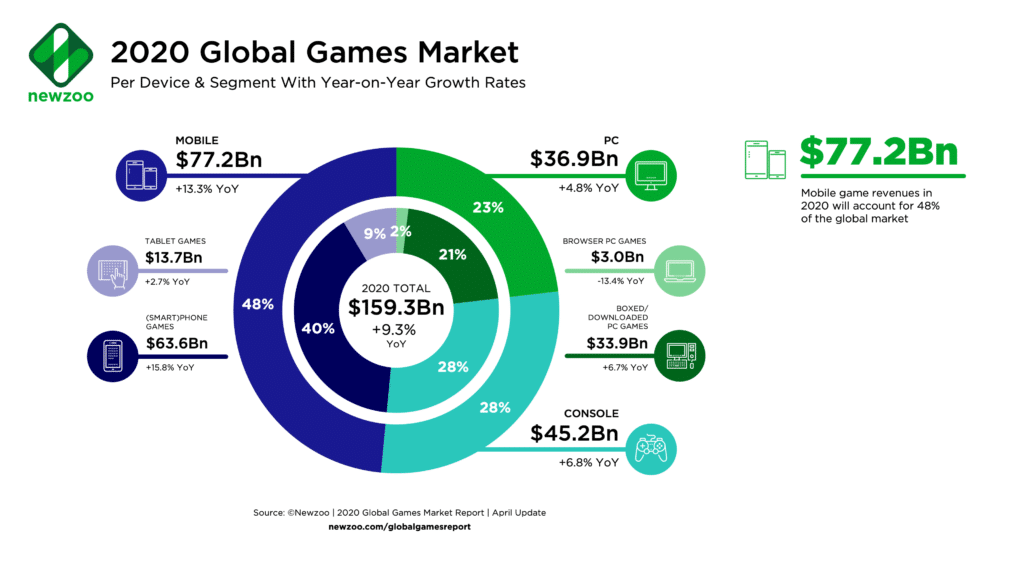Covid-19 has brought the entire world to a standstill, with many people struggling to get 2 meals a day, millions stranded, and the entire economy of the world poised to shrink amidst a long forecasted recession. Yet in these troubled times, many industries have flourished, from online groceries to Ed-Tech, OTT platforms like Netflix streaming digital content to virtual communication and collaboration through apps like Zoom and Slack.
One industry, however, which most people have conveniently chosen to ignore is gaming. According to a report by gaming analytics firm Newzoo, their original estimates of revenue generated by games has risen by more than 6 per cent from their original estimates in 2019, from $148.9B to $159B, with a scope to increase even more depending on the severity and longevity of this pandemic.

The report states that the impact of the virus, which has forced people to stay indoors, has had the most profound impact on mobile gaming, with accessibility playing a key role in getting non-gamers to find new ways to reduce their boredom by playing on their smartphones. The increase in the gamer base is slated to yield revenues of more than $77.2 billion this year, a massive 13 per cent increase from 2019.
“Overall, the 2020 forecast is up based on the higher engagement, driving higher revenues,” Tom Wijman, senior market analyst at Newzoo, told GameDaily, a gaming website. “There are some caveats to that, mostly related to delayed releases, specifically in anticipation of the next-generation console release at the end of the year. In our latest forecast, we shifted this revenue uptake from 2020 to 2021.”
While the outlook for PC and console gaming is not as bullish, with forecasts of only a 6.8% Year on Year (YoY) increase, a large part of it is attributed to many developers either postponing the release or development of their titles, citing logistic and economic uncertainty. The biggest example is Last of Us Part II, which was set to release on 29th May, has now been pushed to 19th June.
On the hardware front, things seem more stable, with consoles like PS5 being back in production at full capacity, which is not expected to delay its release date. The problem though, lies on the demand side. With recession looming and people unwilling to spend on non-essential commodities, it would seem unlikely that many would want to upgrade their existing consoles, also keeping in mind the added costs of buying a new game.
With an unprecedented, once in a lifetime pandemic like Covid19, it is hard to anticipate its true impact on the industry, as there is no historical backing to any forecast, and the scene can change any time. If the current trend within the pandemic is to be followed, gaming in general is going to overachieve its initial estimates, while it is still too early to predict consumer behavior even a month down the line. It has simply become a waiting game at this point.


